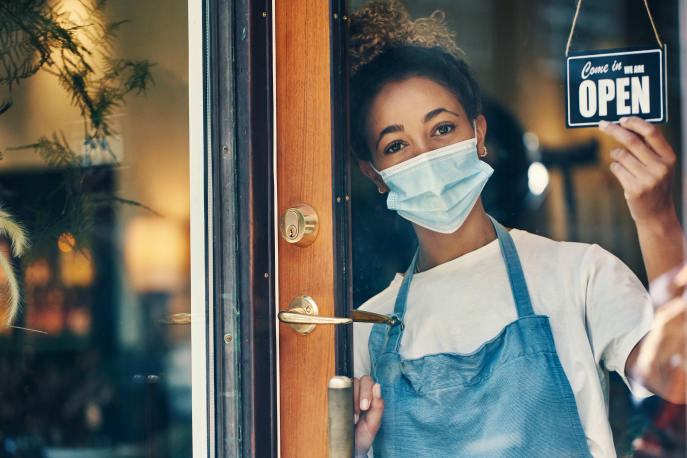Many Americans are vaccinated and ready to return to old pastimes, such as dining at restaurants. According to a recent poll from Morning Consult, Americans are comfortable with dining out at a rate higher than any seen since the beginning of the pandemic. The same holds true for visiting stores and hotels.
Many service and hospitality workers were laid off or furloughed during the pandemic, leading to considerable financial hardship, and those who managed to stay on the job had to live with the risk of being exposed to COVID-19. As consumers return to pre-pandemic habits, there’s an opportunity to take the milestone of reopening as a moment to provide greater protection and support for workers – and not only from physical illness.
Workers in the service and hospitality industries are particularly vulnerable to sexual harassment, misconduct, and abuse for many overlapping reasons. Financial concerns can make them more likely to keep quiet about abuse for fear of losing their jobs, and many service workers may speak English as a second language, making it more challenging to seek help from support services.
But industry leaders can help. For example, prior to the pandemic, RALIANCE partnered with the American Hotel & Lodging Association (AHLA) on the 5-Star Promise, a commitment to advance safety and security for hotel employees and guests. This commitment included providing education for employees that would help them identify and report harassment while emphasizing the importance of multilingual anti-sexual harassment policies. Similarly, this year, RALIANCE awarded the Ya Basta Center a grant supporting their efforts to develop a peer-to-peer anti-harassment training program for janitors.
These and similar efforts in the service and hospitality industries can go a long way toward reducing abuse. If you’re an industry leader ready to take the necessary steps to protect workers, here are a few questions that can help you think through the best way to begin:
• When are my employees most vulnerable during their workday? Are they ever asked to be alone with customers or supervising managers?
• What is the current process for employees reporting abuse? Have they been sufficiently assured that reporting abuse won’t lead to negative repercussions?
• Have I effectively conveyed to customers and other stakeholders that harassment won’t be accepted? Are there additional opportunities to do?
• Does my company offer culturally-specific resources that are inclusive of the diverse needs and experiences of my community? For example, are language assistance services available to those who are reporting harassment or abuse
We hope these questions serve as a starting point for a bigger conversation around the need to protect vulnerable workers. Society’s reopening is a perfect moment to commit to their protection, and RALIANCE intends to remain a resource and partner for those looking for the most effective strategies to make that commitment a reality.
RALIANCE provides consulting, assessment, and employee development services to help build more equitable workplace cultures and create environments free from sexual harassment, misconduct and abuse. We stand ready to support your organization’s goals – contact us today at info@raliance.org to get started.

